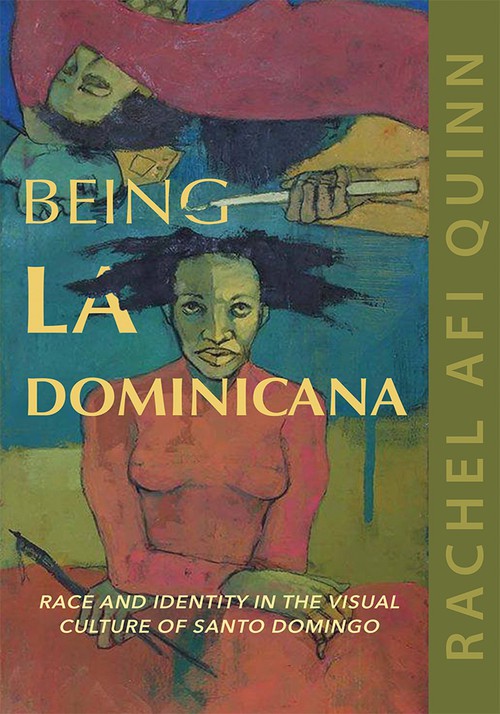
Being La Dominicana
Race and Identity in the Visual Culture of Santo Domingo
Dominican women being seen—and seeing themselves—in popular culture
Cloth – $110
978-0-252-04381-9
Paper – $26
978-0-252-08580-2
eBook – $19.95
978-0-252-05271-2
Publication Date
Paperback: 08/10/2021
Cloth: 08/10/2021
Cloth: 08/10/2021
Series: Dissident Feminisms
About the Book
Rachel Afi Quinn investigates the ways Dominican visual culture portrays Dominican women and how women represent themselves in their own creative endeavors in response to existing stereotypes. Delving into the dynamic realities and uniquely racialized gendered experiences of women in Santo Domingo, Quinn reveals how racial ambiguity and color hierarchy work to shape experiences of identity and subjectivity in the Dominican Republic. She merges analyses of context and interviews with young Dominican women to offer rare insights into a Caribbean society in which the tourist industry and popular media reward, and rely upon, the ability of Dominican women to transform themselves to perform gender, race, and class.Engaging and astute, Being La Dominicana reveals the little-studied world of today's young Dominican women and what their personal stories and transnational experiences can tell us about the larger neoliberal world.
About the Author
Rachel Afi Quinn is an associate professor in the Department of Comparative Cultural Studies and the Women's, Gender, & Sexuality Studies Program at the University of Houston.Reviews
"Rachel Afi Quinn's first monograph is an exceptional interdisciplinary study of how Dominican women in Santo Domingo theorize mixed-raceness and fashion themselves in response to the transnational flow of images." --Transforming AnthropologyBlurbs
"A unique and timely examination of the significance and cultural strategies of Dominican women in the contemporary era marked by neoliberal economic structures, (post) colonial geopolitical arrangements, heteropatriarchal beauty standards, and global anti-blackness. It is an important work of feminist ethnography."—Nicole Fleetwood, author of On Racial Icons: Blackness and the Public Imagination












